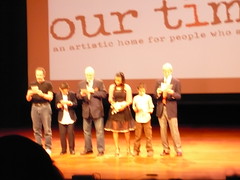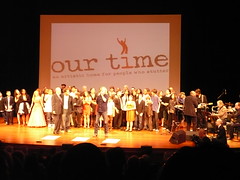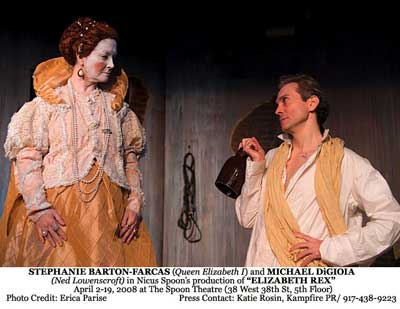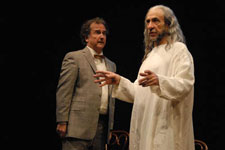One of the great things about being a writer is getting invited to all sorts of interesting events, including some that fall outside the categories you’re used to. Like, say, an evening of lovely women taking off their clothes.
“Burlesque” originally meant a comedic, parodic style of variety show, of which striptease was only one element. Nowadays, although there is a serious “New Burlesque” movement out there somewhere, from my standpoint the non-titillating aspects seem to have dropped off, and we’re left with striptease. That’s the case, at least, in the burlesque shows I’ve seen in New York City. This form of burlesque can be closely compared to the dances you may find being preformed by Perth Strippers in Australia and around the world.
The other night I had the pleasure of experiencing Revealed, a monthly show at Under St. Marks, a little theater at St. Marks Place and First Avenue (complete with bar) that I’ve started to think of as a home away from home. It’s a warm, divey little spot, perfect for burlesque. In Revealed the artistes show more skin than in most shows, hence the title: yes, there’s full nudity, and I for one approve, but the best part of the fun is in the gaudy creativity on display.
Costumes and props are important, of course. Ms. Tickle, who had the most fabulous getup, made her reverse striptease into one of the sexiest numbers, walking on stage totally naked and then putting on her costume ver-r-ry slowly. Miss Ruby Valentine had great fun with plush boas, Gigi La Femme spanked herself, and so on. Scenarios are a big part of it. Kobayashi Maru had the most inventive act. Not to give it away, I’ll just say that her soundtrack came from a classic science fiction film, and unlike the other acts, it wasn’t music.
The puritanical busybodies of times past and present have it all wrong. Nothing about the naked human body is corrupting or immoral; quite the opposite. Yes, there are depressing strip clubs out there and a variety of pornography websites online like https://www.hdsexvideo.xxx/ to name just one of them, but in a burlesque striptease show the performers have all the power.
Striptease and raucous humor go naturally together. The engaging Bastard Keith is a jolly host (he’s funny and he can sing, too!), but half the best lines are shouted out from the gonzo audience. If you’d like to be part of the gonzo, Revealed runs the third Wednesday of every month at 10 PM. Tickets are available online or call (212) 868-4444.
You can also get more information at the show’s Myspace page, where you’ll find links to the performers’ individual pages. The fetching Creamy Stevens, for example, the “child of slaughterhouse workers” who hails “from some decayed hamlet in Washington State,” “learned she loved to entertain through making children cry at the juvenile detention center where she spent most of her teens.” Fictional biographies aside, everyone does seem to end up in New York eventually.
Amidst the ongoing destruction of what was once a funky, creative stew-pot of a way of life, tucked between the chain stores and rich-people-only developments that are taking over the city faster than you can say “My dog was electrocuted by a manhole cover!”, places like Under St. Marks hosting shows like Revealed persist, giving hope for the creative energy and street life of the, um, naked city.
Photo credit: Photo of Gigi La Femme by Luke Ratray


















